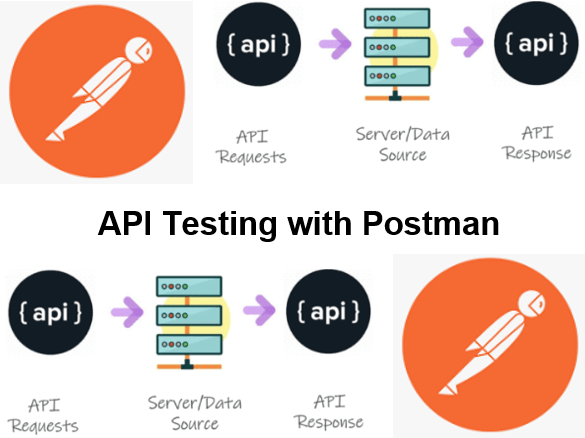-
Learning by doing
-
Trainers with practical experience
-
Classroom training
-
Detailed course material
-
Clear content description
-
Tailormade content possible
-
Training that proceeds
-
Small groups
In the course API Testing with Postman, participants learn to use the Postman application to test APIs and automate API tests. Participants learn to send various requests and validate the responses.
This module introduces APIs and how Postman is used for testing. Learners explore the Postman UI, gain an understanding of REST and SOAP APIs, HTTP methods, and the structure of requests and responses. It also introduces Postman workflows and Postman Flows for visual automation.
Participants learn to create various types of API requests: GET, POST, PUT, and DELETE. Topics include query and path parameters, request headers, authentication, sending JSON or form data, and testing public APIs through hands-on practice.
This module focuses on validating API responses. Learners check HTTP status codes, validate JSON and XML responses, and write assertions for status codes, response bodies, headers, JSON schemas, and XML structures.
This module covers grouping and managing API requests using collections. Topics include templates, types of collections, using the Postman API Builder, setting up environments, and working with global variables.
Participants automate testing using pre-request and test scripts. They learn how to work with dynamic data, create custom assertions, use snippets for automation, test performance, and validate APIs automatically.
This module covers test parameterization using CSV and JSON files. Learners use the Param tab, reuse data, capture dynamic values, and execute multiple test cases with Postman Runner to support data-driven testing.
Participants set up mock servers in Postman to simulate API responses. Topics include API keys, creating mock servers from collections, configuring responses, scheduling tests, and monitoring APIs through simulated endpoints.
This module explores integrating Postman tests into CI/CD pipelines such as Jenkins and GitHub Actions. Learners generate test reports, use Postman CLI, configure custom webhooks, and automate reporting for continuous delivery environments.
The course API Testing with Postman is intended for testers, developers and devops engineers who work with APIs.
To participate in the course, basic knowledge of Web standards such as HTTP and HTTPS is required. Knowledge of JSON is beneficial for understanding.
Live API demo sessions led by the trainer, alternated with hands-on practical exercises.
After successfully completing the course, participants will receive a certificate of participation in API Testing with Postman.

Module 1: Postman Intro |
Module 2: Working with Requests |
Module 3: Response Validation |
|
What is an API? Intro to Postman UI Overview Postman Features Understanding REST API's Understanding SOAP API's HTTP Methods Request Structure Response Structure Workflows in Postman Postman Flows |
Creating GET Requests POST versus PUT DELETE Requests Query Parameters Path Parameters Handling Request Headers Using Authentication Sending Data with JSON Sending Form Data Testing Public API's |
HTTP Status Codes Checking JSON Responses Checking XML Responses Extracting Data from API Responses Assertions in Postman Status Code Assertions Response Body Assertions Header Assertions JSON Schema Assertions XML Assertions |
Module 4: Postman Collections |
Module 5: Automating Postman Scripts |
Module 6: Data-Driven Testing |
|
Creating Collections Grouping API Requests Managing Collections Postman Templates Types in Collections Collection Format Postman API Builder Using Environments Global Variables |
Intro Postman Test Scripts Pre-request Scripts Post-response Scripts Test Scripts Tests with Dynamic Data Custom Test Assertions Snippets for Automation Testing Performance Automating API Validation |
Parameterized Tests Param Tab Reading CSV Files Capture and Parameterize Reuse of Data CSV for Parameterized Tests JSON for Parameterized Tests Postman Runner Executing Multiple Test Cases |
Module 7: Mock Servers |
Module 8: CI/CD Integration |
|
|
Setting Up Mock Servers Postman API key Postman Mock Server Mock Server from Collection Mock Server Configuration Scheduling API Tests API Monitoring Simulating API Responses |
Running Tests in Jenkins Running Tests in GitHub Actions Generating Test Reports Available Integrations Exporting API Test Reports Automating in CI/CD Pipeline Custom WebHooks Postman CLI |
